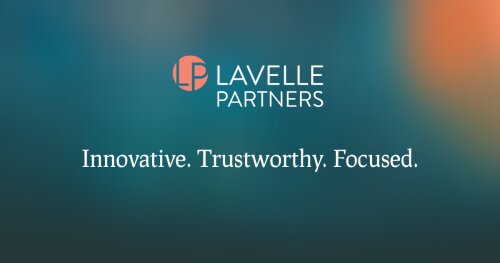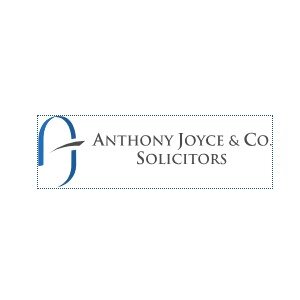Best Creditor Lawyers in Dublin
Share your needs with us, get contacted by law firms.
Free. Takes 2 min.
List of the best lawyers in Dublin, Ireland
About Creditor Law in Dublin, Ireland
Creditor law in Dublin, Ireland encompasses the rights and responsibilities of creditors-the parties to whom money is owed. This area of law deals with issues such as debt recovery, insolvency, bankruptcy, and enforcement of judgments. Given Dublin's status as a major economic hub, the application and enforcement of creditor rights are critical for maintaining financial stability and discipline among borrowers and lenders alike.
Why You May Need a Lawyer
There are several situations in which a person or business may require legal help with creditor issues:
- Debt Recovery: If a debtor fails to pay, you may need a lawyer to initiate legal proceedings to recover the owed amount.
- Insolvency and Bankruptcy: Navigating the complexities of insolvency, whether you are a creditor or a debtor, often requires professional legal guidance.
- Negotiation and Settlement: Lawyers can help negotiate repayment plans or settlements that are legally binding and fair.
- Enforcement of Judgments: If you have a court judgment in your favor, a lawyer can assist in the enforcement process to ensure you receive what you are owed.
- Defending Against Claims: If a claim is brought against you, a lawyer can prepare a defense and represent you in court.
Local Laws Overview
Dublin's legal framework for creditor issues is primarily governed by Irish national laws, with specific local practices and courts handling relevant cases. Key laws include:
- Bankruptcy Act 1988: This act outlines the procedures for declaring bankruptcy and the rights of creditors within bankruptcy proceedings.
- Companies Act 2014: It governs corporate insolvency and restructuring processes.
- Personal Insolvency Act 2012: This act provides mechanisms for personal insolvency, such as Debt Relief Notices, Debt Settlement Arrangements, and Personal Insolvency Arrangements.
- Court Orders and Enforcement: The District Court, Circuit Court, and High Court handle various aspects of creditor cases, including issuing and enforcing court orders.
- European Communities (Late Payment in Commercial Transactions) Regulations 2012: These regulations enforce the prompt payment of debts in commercial transactions.
Frequently Asked Questions
What is the process for recovering a debt in Dublin?
To recover a debt, you typically begin by sending a demand letter to the debtor. If the debt is not repaid, legal proceedings can be initiated, usually starting in the District Court or Circuit Court depending on the amount owed.
What are the implications of declaring bankruptcy in Dublin?
Declaring bankruptcy in Dublin will involve liquidating your assets to pay off creditors. It remains on your credit record and can impact your financial standing significantly. Legal advice is essential for navigating these proceedings.
Can a creditor seize my property?
If a creditor has obtained a judgment against you, they may apply to the court for enforcement orders, which can include the seizure of property, garnishment of wages, or freezing of bank accounts.
What is the Statute of Limitations for debt recovery?
In Ireland, the Statute of Limitations for debt recovery is generally six years from the date the debt becomes due.
What should I do if I receive a debt collection letter?
If you receive a debt collection letter, it is important to respond promptly. Verify the debt and consult a solicitor if you have any disputes or need to negotiate repayment terms.
How can I prove that a debt has been paid?
Keep all receipts, bank statements, and any correspondence that details your payments. These documents can serve as evidence if a dispute arises.
What are Debt Settlement Arrangements (DSAs)?
DSAs are legal agreements between a debtor and creditors for the settlement of unsecured debts over a period of time. Approval from both the courts and a majority of creditors is required.
How does the court enforce a judgment in my favor?
Once you have a judgment, you can apply for enforcement orders such as an instalment order, an attachment of earnings order, or a property seizure order through the court.
Can a lawyer help negotiate with creditors?
Yes, a skilled lawyer can negotiate with creditors on your behalf to either reduce the debt amount, extend repayment terms, or come to a mutually acceptable settlement.
What happens if a business I lent money to goes bankrupt?
If a business goes bankrupt, you'll need to file a claim with the appointed insolvency practitioner to recover any amounts owed. The recovery will depend on available assets and claims' priority.
Additional Resources
Here are some resources and organizations that can provide additional assistance:
- Citizens Information: Provides comprehensive information on legal rights and obligations in Ireland.
- Irish Insolvency Service: Offers services related to personal and corporate insolvency.
- The Irish Courts Service: Information on court procedures and services available.
- Central Credit Register: Maintains credit records and can aid in verifying the debt status.
- The Law Society of Ireland: Can help you find a qualified solicitor specializing in creditor law.
Next Steps
If you need legal assistance in creditor matters, consider taking the following steps:
- Identify Your Needs: Determine whether you require debt recovery, negotiation, bankruptcy advice, or defense against a claim.
- Consult a Lawyer: Research and consult a qualified solicitor who specializes in creditor law.
- Gather Documentation: Collect all relevant documents, including contracts, correspondence, and payment records.
- Understand the Costs: Discuss legal fees and ensure you're clear about the cost implications of the legal process.
- Follow Legal Advice: Adhere to the advice given by your lawyer and attend any required court appearances or meetings.
Legal issues regarding creditor rights can be complex and time-sensitive, so seeking professional legal advice early can protect your interests and help achieve a favorable outcome.
Lawzana helps you find the best lawyers and law firms in Dublin through a curated and pre-screened list of qualified legal professionals. Our platform offers rankings and detailed profiles of attorneys and law firms, allowing you to compare based on practice areas, including Creditor, experience, and client feedback.
Each profile includes a description of the firm's areas of practice, client reviews, team members and partners, year of establishment, spoken languages, office locations, contact information, social media presence, and any published articles or resources. Most firms on our platform speak English and are experienced in both local and international legal matters.
Get a quote from top-rated law firms in Dublin, Ireland — quickly, securely, and without unnecessary hassle.
Disclaimer:
The information provided on this page is for general informational purposes only and does not constitute legal advice. While we strive to ensure the accuracy and relevance of the content, legal information may change over time, and interpretations of the law can vary. You should always consult with a qualified legal professional for advice specific to your situation.
We disclaim all liability for actions taken or not taken based on the content of this page. If you believe any information is incorrect or outdated, please contact us, and we will review and update it where appropriate.











